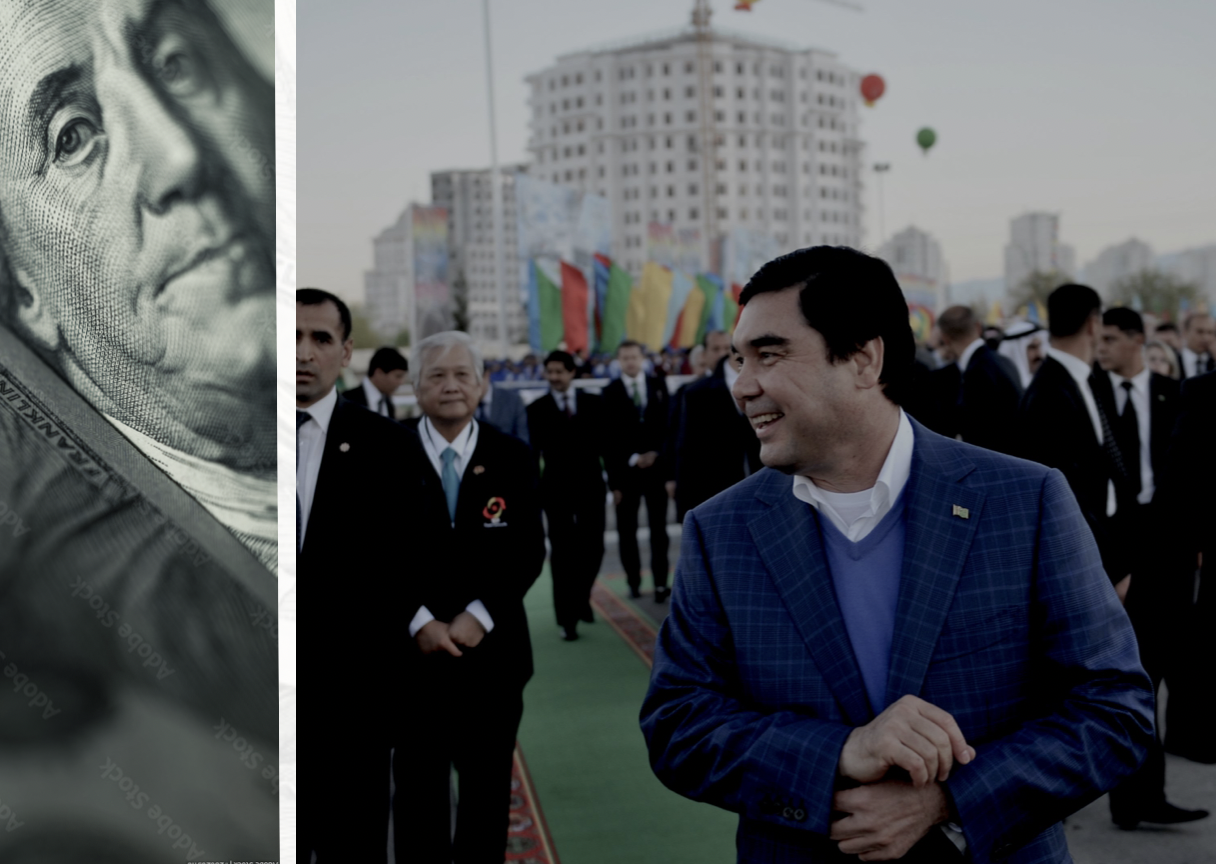Following the snap transition of power in Turkmenistan, Crude Accountability urges western governments and international institutions to demand transparency and accountability from the country’s new presidential administration. We also call on western businesses and financial services to stop investing in hydrocarbons in the country, which enables corruption and authoritarianism.
We urge western governments and international institutions to hold the government of Turkmenistan accountable financially, economically, and in the human rights context, rather than strengthening authoritarianism, oligarchy, and kleptocracy.
On March 12, 2022, in snap elections, Serdar Berdymukhamedov, the son of the previous president Gurbanguly Berdymukhamedov, was elected the next president of Turkmenistan.
As indicated in our 2021 report, Turkmenistan: A Model Kleptocracy, Serdar Berdymukhamedov has long been groomed to become the country’s next president. Along with authoritarian power, Serdar Berdymukhamedov inherits the corrupt legacy established by the country’s first president, Saparmurat Niyazov. Niyazov created a system of kleptocracy and a cult of personality, and perpetrated and oversaw blatant human rights abuses, which continued under his successor, Gurbanguly Berdymukhamedov.
With an economy driven by hydrocarbons, Turkmenistan has one of the most opaque regimes in the world. The government releases no reliable information on economic growth, the national budget, oil and gas revenues, or currency reserves. Rather than benefiting the country’s population of 5 million people, these funds enrich a small group of elites, including the president and his closest circle. In addition, environmental degradation and climate impacts from fossil fuel development devastate Turkmenistan. Greenhouse gas emission, including methane, pose significant environmental and climate concerns.
Hydrocarbon revenues also sponsor repression. The government has abolished independent civic groups, repressed activists and scientists, and kept the citizens of the country, who should be rich from hydrocarbons, in overwhelming poverty. The corrupt practices of the Turkmen government include enforced disappearances, and the creation and maintenance of a brutal prison system in which people are held without access to legal or medical help, and with no visitation or letters from their loved ones.
Despite these atrocities, many companies continue to engage in business with Turkmenistan. Western businesses, including companies from the United States, profit from one of the most repressive regimes in the world, often by establishing personal links with Turkmenistan’s first family. Economic deals with the government, the provision of goods and services to the state– including tax havens and foreign currency accounts–enable the regime to strengthen its corrupt and brutal system.
“Serdar Berdymukhamedov has the opportunity to turn over a new leaf for Turkmenistan both economically and politically as he steps into the seat of the President. Opening up society, allowing free and independent media to work in the country, reforming the legal system, and shifting the economic base of the country from hydrocarbons to more sustainable industry are among some of the steps he could take to set Turkmenistan on a new path. And of course, ceasing the practice of enforced disappearances, and informing families of those who are currently disappeared about their situation, would prove to the world that the new Berdymukhamedov is committed to adhering to its international human rights commitments,” said Kate Watters, executive director of Crude Accountability.
Crude Accountability urges western governments and international institutions to demand that the new administration acts in adherence to international laws and human rights standards and provides more transparency into its financial operations.
****
Since 2003, Crude Accountability has been working to help communities around the Caspian Sea region impacted by environmentally dangerous projects.
The Prove They Are Alive! campaign, of which Crude Accountability is a founding member, works to protect the rights of political prisoners who have been forcibly disappeared in Turkmenistan’s prison system. Some of these prisoners have been disappeared since 2002, and revenues from the oil and gas industry have enabled the Turkmen regime to continue this gross violation of human rights.
Who’s Who in Turkmenistan, Petroleum Company Dossiers (2022), a unique dossier of companies working in the oil and gas sector in Turkmenistan, is available HERE.
Turkmenistan: A Model Kleptocracy (2021) report is available HERE

